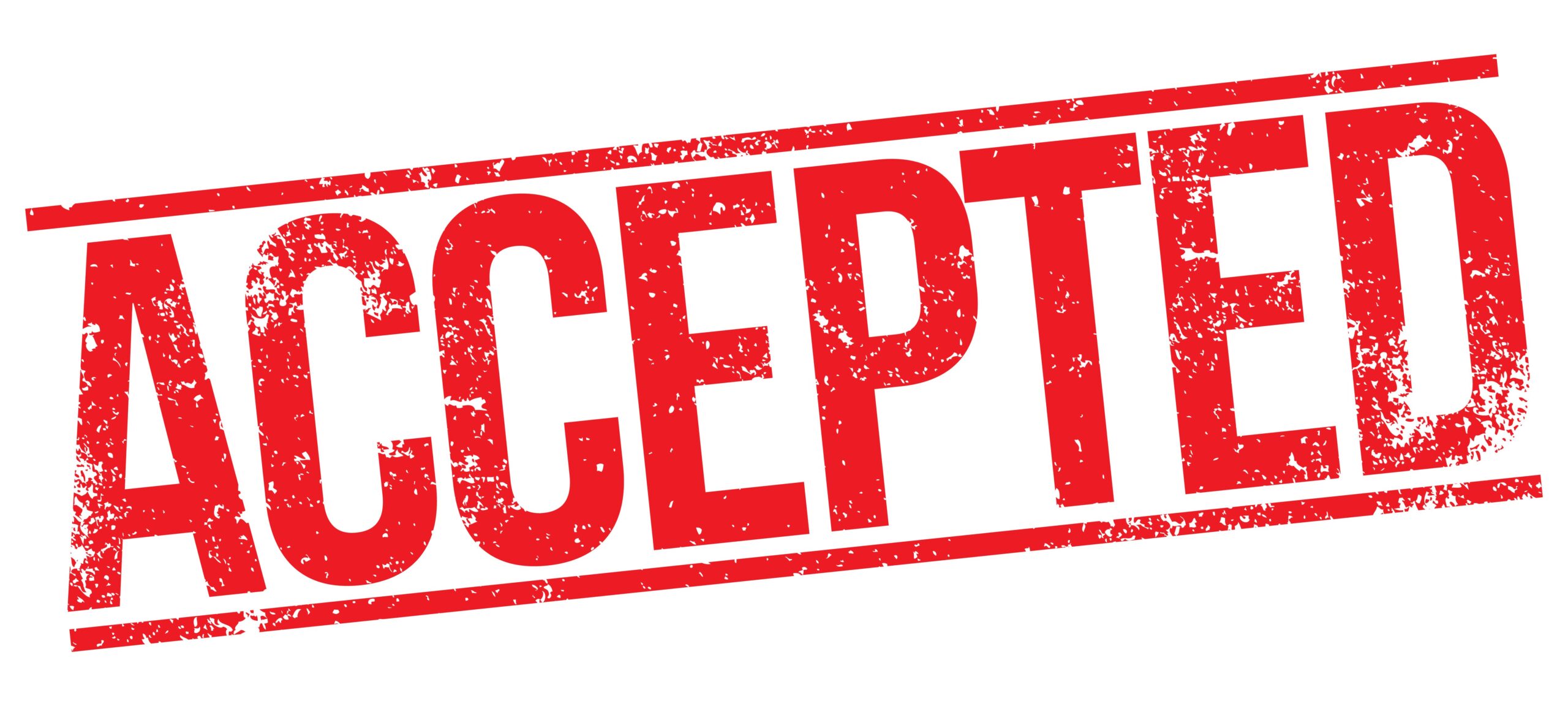Interpretation of Accounts in Dreams
Theories on Accounts in Dream Analysis
The interpretation of accounts in dreams has been a subject of interest for many dream analysts and psychologists. It is believed that dreams are a reflection of our unconscious thoughts, desires, and fears, and understanding the symbols and themes that appear in them can provide valuable insights into our psyche.
From a psychological perspective, accounts in dreams may represent an individual’s feelings about financial security, stability, or lack thereof. According to some theories, accounts in dreams can be associated with anxiety and feelings of being overwhelmed by responsibilities or debts. On the other hand, having control over one’s finances or assets in a dream may symbolize empowerment, confidence, and a sense of security.
Some researchers suggest that accounts in dreams may be related to past experiences, such as memories of financial struggles or successes. These unresolved emotions can manifest as repressed thoughts or feelings about money and finances in our dreams. By examining these themes, individuals can gain a deeper understanding of their emotional states and work through any underlying issues.
In addition, dream analysis suggests that accounts in dreams may be linked to personal growth and development. Having access to a large account or financial resources in a dream could represent an individual’s desire for success and achievement. Conversely, being unable to manage one’s finances effectively in a dream might symbolize fears about failure or lack of progress.
It is worth noting that the meaning of accounts in dreams can vary greatly depending on the context of the dream and the emotions experienced by the individual. For example, having an argument with someone over money or financial matters may represent conflict or anger, while receiving a large sum of money unexpectedly may symbolize good fortune or unexpected opportunities.
Ultimately, understanding the significance of accounts in dreams requires a nuanced and multifaceted approach that takes into account various psychological theories, emotional states, and personal experiences. By exploring these themes, individuals can gain a deeper understanding of themselves and their place within the world.
Financial stability or insecurity can manifest as accounts in a dream
The interpretation of accounts in dreams has fascinated people for centuries, and there are many theories about what it means to see or experience different types of accounts in a dream.
One possible interpretation of accounts in dreams is that they represent our emotional state, particularly when it comes to money and financial stability. Seeing a bank account filled with money may indicate feelings of security and prosperity, while an empty or overdraft notice could suggest anxiety or worry about finances.
Accounts can also symbolize personal growth and development, reflecting the idea that life is a journey where we accumulate experiences, knowledge, and skills, just as we might accumulate wealth in real life. Seeing a account filled with valuable possessions or skills may signal confidence and self-worth, while an account drained of resources could indicate feelings of depletion or burnout.
The context of the accounts in the dream can also provide insight into their meaning. For example, seeing a credit card statement may symbolize feelings of being overextended or overwhelmed, while a bank statement might represent more concrete financial concerns.
Another theory is that accounts in dreams can serve as a reflection of our inner world, representing aspects of ourselves that we need to acknowledge and work with. In this sense, seeing an account filled with debts may indicate unresolved emotional conflicts or unfinished business from the past.
The way we interact with the accounts in the dream can also be significant. For example, if we’re trying to balance a checkbook or pay bills on time, it could suggest our desire for control and responsibility in our waking lives.
Additionally, accounts in dreams can also have a more abstract meaning, representing different areas of life where we need to make decisions and manage resources effectively. For instance, seeing an account filled with emotional experiences may indicate a need to process and integrate past events or emotions.
In many cases, the interpretation of accounts in dreams is highly personal and subjective, reflecting individual concerns, values, and experiences. By examining the specific details of the dream and our own life situation, we can gain a deeper understanding of what the account may be trying to tell us.
According to Carl Jung’s collective unconscious theory, accounts may represent an individual’s emotional state
Certainly one of the most fascinating and complex aspects of dreams is their potential to convey hidden meanings through accounts, also known as stories or scenarios that unfold within the dream narrative.
According to Carl Jung’s collective unconscious theory, these accounts may represent an individual’s emotional state in a more subtle and symbolic manner. The idea is that the collective unconscious serves as a shared reservoir of archetypes and experiences common to all humans, which can manifest in dreams as various symbols or narratives.
In the context of dream interpretation, accounts often carry personal significance and tap into the unconscious mind’s ability to process and reflect emotions. They may symbolize unresolved issues, past traumas, or suppressed desires that need attention and integration within an individual’s psyche.
When analyzing a dream account, it is essential to consider the following factors: the narrative itself, the characters involved, the setting, and any emotional undertones present in the scene. By examining these aspects, one can gain insight into their inner world and uncover underlying motivations or unresolved emotions.
The collective unconscious theory suggests that accounts in dreams serve as a bridge between the conscious mind and the unconscious, allowing individuals to access and process deep-seated thoughts, feelings, and experiences that may have been hidden or neglected during waking hours. This process of self-discovery can lead to personal growth, emotional healing, and increased awareness.
Furthermore, accounts in dreams often possess a unique narrative structure, which can be influenced by an individual’s past experiences, cultural background, and personal biases. Recognizing these influences is crucial for accurate interpretation and avoiding misattribution of symbolism.
In conclusion, accounts in dreams offer a valuable window into the unconscious mind, providing insight into emotional states and unresolved issues that may need attention. By carefully analyzing and interpreting these narrative sequences, individuals can tap into their collective unconscious, fostering personal growth, self-awareness, and emotional healing.
Research by the University of Oxford suggests that dreams about finances can be linked to reallife anxieties
The interpretation of accounts in dreams has long been a subject of interest and intrigue, with many theories attempting to explain its meaning. Research by the University of Oxford suggests that dreams about finances can be linked to real-life anxieties, providing insight into the subconscious mind’s ability to process and reflect on our waking concerns.
When we dream about accounts, it may signify feelings of guilt, shame, or anxiety related to financial matters in our waking lives. This could be due to recent financial struggles, past mistakes, or even future worries. The dream may serve as a reflection of our emotional state, highlighting areas where we feel uncertain or apprehensive.
On the other hand, dreams about accounts can also represent a sense of control and security. In this context, the account may symbolize a feeling of being in charge of one’s finances, with a clear understanding of income, expenses, and savings. This could be a manifestation of our desire for stability and financial freedom.
Additionally, dreams about accounts can be linked to themes of responsibility, accountability, and trust. We may dream about accounts as a way of confronting past mistakes or unresolved issues related to finances, such as debt, overspending, or poor investment decisions. This could indicate a need for self-reflection and introspection to address these concerns.
The symbolism of accounts in dreams can also vary depending on the specific context of the dream. For instance, if we dream about checking our account balance, it may represent a desire for clarity and transparency regarding our financial situation. If we dream about someone else’s account, it could symbolize feelings of curiosity or concern about that person’s financial well-being.
It is essential to consider the emotions and sensations experienced during the dream when interpreting accounts in dreams. Do you feel anxious, frustrated, or overwhelmed? Or do you feel a sense of calmness, security, and control? The emotional tone of the dream can provide valuable insights into your subconscious mind’s perspective on your financial situation.
In conclusion, the interpretation of accounts in dreams is multifaceted and influenced by various factors. By examining the context, emotions, and symbolism within the dream, we can gain a deeper understanding of our subconscious mind’s attempts to process and reflect on our waking concerns. Whether linked to real-life anxieties or symbolizing feelings of control and security, accounts in dreams offer a unique window into our emotional state and financial well-being.
Symbolism and Personal Associations
Linking Accounts to Real-Life Experiences
Symbols and personal associations are intricately linked with our real-life experiences, playing a significant role in shaping the narrative of our dreams. The subconscious mind weaves together fragments of our waking lives to create vivid, often inexplicable scenarios that offer glimpses into our innermost thoughts, desires, and unresolved issues.
The process of attributing meaning to symbols and linking accounts to real-life experiences is a deeply personal and subjective endeavor. It requires us to delve into the depths of our psyche, exploring the complex tapestry of emotions, memories, and experiences that make up who we are. By doing so, we begin to unravel the mysteries of our dreams, gradually deciphering their symbolism and uncovering hidden messages.
Symbols in dreams can be understood as visual representations of abstract concepts, emotions, or ideas. They often carry personal significance, drawing upon our individual experiences and cultural background. For instance, a snake might symbolize transformation for one person but fear of being trapped for another. This subjective interpretation is influenced by our unique life stories, values, and beliefs.
Personal associations are closely tied to the emotional resonance of our memories. A particular place or object in a dream may evoke feelings of nostalgia or anxiety, directly linked to a specific event from our past. By acknowledging these associations, we gain insight into the underlying dynamics that shape our dreams, revealing patterns and connections between seemingly unrelated fragments of our lives.
The act of linking accounts to real-life experiences also highlights the interconnectedness of our waking and sleeping lives. Our dreams are not isolated entities but rather an extension of our conscious minds, reflecting unresolved conflicts, unexpressed emotions, and unfinished business from our daily lives. By confronting these unresolved issues through dream analysis, we can begin to heal and integrate disparate aspects of ourselves.
Moreover, exploring the symbolism and personal associations in our dreams encourages us to develop a greater awareness of our thoughts, emotions, and behaviors. This heightened self-awareness enables us to navigate the complexities of our inner lives with more clarity and compassion, leading to increased emotional intelligence and improved relationships with others.
In conclusion, linking accounts to real-life experiences through symbolism is an essential aspect of understanding our dreams. By embracing this subjective process, we open ourselves up to the profound wisdom contained within our subconscious minds, gaining valuable insights into our innermost selves and the world around us.
A dream about being overdrawn at a bank may symbolize feelings of guilt or anxiety related to financial decisions
Symbols and personal associations are intricately intertwined, allowing individuals to tap into their subconscious mind and uncover hidden meanings behind their dreams.
When it comes to accounts, such as bank accounts or financial records, they often symbolize feelings of security, stability, and responsibility. A dream about being overdrawn at a bank may indicate a sense of anxiety or guilt related to financial decisions, reflecting the individual’s concerns about meeting their financial obligations.
Here are some possible interpretations of accounts in dreams:
- A dream about having a high balance in an account may symbolize feelings of security and stability, as well as a sense of accomplishment and success.
- On the other hand, a dream about being overdrawn or running out of money may indicate anxiety or guilt related to financial decisions, reflecting concerns about meeting one’s financial obligations.
- A dream about seeing accounts or financial records may symbolize a need for organization and control in one’s life, as well as a desire for clarity and transparency in financial matters.
- A dream about someone else’s account being over drafted may indicate feelings of responsibility or concern for another person’s financial situation, highlighting the importance of empathy and compassion.
It is essential to note that these interpretations are not absolute and can vary depending on the individual’s personal associations and experiences. The context in which the dream occurs, as well as any other details or emotions experienced during the dream, can also influence its meaning.
To better understand the symbolism of accounts in dreams, it may be helpful to consider the following questions:
- What are my current financial concerns or anxieties?
- How do I feel about responsibility and stability in my life?
- Are there any areas where I feel a lack of control or organization?
By exploring these questions and considering the personal associations that come to mind, individuals can gain a deeper understanding of their dreams and tap into the symbolic language of their subconscious mind.
Dreams about lost or misplaced accounts can represent disconnection from one’s goals or values
Symbolism and personal associations are closely intertwined when it comes to interpreting dreams. In the context of accounts dream meaning, symbolism plays a crucial role in deciphering the hidden message behind the subconscious mind’s representation.
The concept of accounts can symbolize various aspects of our waking lives, including financial security, relationships, and personal goals. When we dream about lost or misplaced accounts, it may indicate disconnection from these core elements. This disconnection can stem from feelings of insecurity, fear of failure, or a sense of being overwhelmed.
Let’s break down the possible symbolism associated with accounts in dreams:
- Loss of control: Misplacing or losing account-related items may symbolize a loss of control over one’s life. This can be due to circumstances beyond our control, such as financial setbacks or relationship issues.
- Financial insecurity: Dreams about lost or misplaced accounts often revolve around finances. This could represent anxieties about job security, debt, or uncertainty about meeting financial responsibilities.
- Disconnection from goals: When we dream about losing track of our accounts, it may signify disconnection from our personal goals and values. This can occur when we feel lost or uncertain about our life’s direction.
- Misplaced priorities: Misplacing or losing account-related items may indicate misplaced priorities in waking life. This can be a sign that we need to reassess our values and focus on what truly matters.
Personal associations also play a significant role in interpreting accounts dream meaning. Each person’s experiences, emotions, and thoughts are unique, influencing the symbolism of the dream. For instance:
- Fear of failure: If you’re prone to anxiety about failing or making mistakes, lost or misplaced account dreams may be a manifestation of these fears.
- Emotional blockages: Dreams about accounts can also represent emotional blockages or unresolved issues. This could be related to past traumas, relationships, or personal conflicts.
- Need for organization: If you’re someone who values organization and structure, lost or misplaced account dreams may suggest a need to reassess your daily routines and habits.
In conclusion, symbolism and personal associations are essential components of understanding accounts dream meaning. By examining the possible interpretations of lost or misplaced accounts in dreams, we can gain insight into our subconscious mind’s messages and work towards reconnecting with our goals, values, and priorities in waking life.
As per the American Psychological Association, dreams often serve as a reflection of an individual’s concerns and emotions
Symbols in dreams have long been recognized for their ability to evoke powerful personal associations, serving as a window into an individual’s unconscious thoughts and emotions. According to the American Psychological Association, dreams often reflect an individual’s concerns and emotions in a way that is unique to their personal experiences and perspectives.
This phenomenon is rooted in the idea that symbols are not inherently meaningful, but rather take on significance based on the individual’s personal associations and experiences. As a result, different people may have varying interpretations of the same dream symbol, reflecting their unique life circumstances and emotional resonance.
The process of creating meaning from symbolic expressions involves an intricate interplay between personal associations, cultural context, and individual experience. Personal associations are formed through a complex network of memories, experiences, and emotions that are tied to specific symbols or objects. For instance, a particular dream symbol may evoke feelings of nostalgia or anxiety in one person, whereas it might elicit a sense of excitement or curiosity in another.
When analyzing a dream, it is essential to consider the personal associations that an individual has formed with the symbolic expressions presented in their dreamscape. This requires a deep understanding of the individual’s emotions, experiences, and cultural background, as well as the ability to explore the complex relationships between symbols, memories, and emotions.
One way to approach this is by using free association techniques, where the individual is encouraged to freely express any thoughts, feelings, or images that arise in response to the dream symbol. This can help to uncover hidden connections and reveal the personal associations that underlie the symbolic expression, ultimately providing insight into the individual’s underlying concerns and emotions.
The significance of understanding personal associations in dreams cannot be overstated. By recognizing the complex web of meanings that individuals form around symbols and objects, therapists and dream analysts can gain a more nuanced understanding of an individual’s psychological landscape. This, in turn, can facilitate more effective interventions and treatments, as well as foster greater self-awareness and emotional intelligence.
Ultimately, the exploration of personal associations in dreams offers a rich terrain for self-discovery, growth, and transformation. By embracing the symbolic language of the unconscious mind and exploring its complex meanings, individuals can gain a deeper understanding of themselves and their place within the world, ultimately leading to greater insight, empathy, and compassion.
Unlocking the Meaning of Your Accounts Dream
Paying Attention to Details and Emotions
The meaning behind an account’s dream can vary greatly depending on the specifics of the dream, but there are some common themes and associations that can help unlock its significance.
Firstly, it’s essential to consider the context of the dream. What was happening before the account appeared? Was it a peaceful scene or a chaotic one?
The appearance of an account in your dream could symbolize several things:
- A sense of responsibility or obligation.
- A feeling of being overwhelmed by financial worries or debt.
- A need to take control and manage one’s finances more effectively.
When it comes to the specifics of the account, consider the following:
- The type of account: Was it a checking or savings account? A credit card or loan account?
- The state of the account: Was it full or empty? Did you see any specific numbers or balances?
Now, let’s talk about emotions. How did you feel during the dream?
- Were you anxious or stressed about the account?
- Did you feel a sense of accomplishment or relief when you balanced the books?
The emotions you experienced in your dream can provide valuable insight into what’s going on in your waking life.
For example, if you dreamed about an empty account and felt anxious about it, this could indicate that you’re struggling with feelings of insecurity or lack in a specific area of your life.
On the other hand, if you dreamed about a full account and felt a sense of relief, this could suggest that you’ve been working hard to manage your finances effectively and are feeling more secure as a result.
Finally, pay attention to any details or sensations in your dream that may seem insignificant at first glance but hold hidden significance. For example:
- You saw a specific number or date on the account.
- You heard a voice or sound related to the account.
These details can provide clues about what your subconscious is trying to communicate with you.
By paying attention to these details and emotions, you can unlock the meaning behind your accounts dream and gain insight into your thoughts, feelings, and desires.
Pay attention to the setting and characters in your dream, as they may hold clues about its meaning
The interpretation of dreams has been a long-standing fascination for many, with accounts appearing as a recurring theme in various cultures and contexts. To unlock the meaning behind your account dream, it’s essential to consider the setting and characters involved.
Setting: Pay attention to where you are in your dream. Are you at home, work, or somewhere else? The location may hold significance, especially if it’s a place that holds emotional value for you. For example, being in a familiar environment might suggest feelings of comfort and security, while being in an unfamiliar setting could indicate anxiety or uncertainty.
Characters: Identify the people present in your dream, including friends, family members, or strangers. Their presence may reflect aspects of your personality, relationships, or unresolved issues. For instance:
- If a character is missing or deceased in your dream, it could symbolize feelings of loss, guilt, or unresolved emotions related to the person.
- Meeting someone you’ve never met before might indicate an introduction to a new idea, skill, or opportunity.
- Being with loved ones can represent a desire for connection and support in your waking life.
The content of your account dream is also crucial. What are you doing in the dream? Are you paying bills, dealing with financial issues, or experiencing some other type of transaction? This could be related to:
- Feeling overwhelmed by responsibilities or tasks.
- Anxiety about money or financial security.
- A need for balance between work and personal life.
To further explore the meaning behind your account dream, consider the following questions:
- What emotions did you experience during the dream?
- Were there any recurring themes or symbols that appeared throughout the dream?
- How do you feel about money and finances in your waking life?
By examining these aspects of your account dream, you may uncover hidden meanings and insights that can help you better understand yourself and make positive changes in your life.
Analyze your emotional response to the accounts in your dream; are you feeling anxious or relieved?
Unlocking the meaning of your accounts dream requires a thorough analysis of the emotions and sensations experienced during the dream. The first step is to identify how you felt while dreaming about accounts, whether it was anxiety or relief.
To analyze your emotional response, ask yourself some questions: Were you stressed or overwhelmed by the accounts in your dream? Did you feel a sense of urgency or pressure to balance the books? Or did you feel a sense of calm and clarity, as if everything was under control?
Consider the following possible emotions associated with accounts dreams:
- Anxiety: Feeling anxious about accounts may indicate underlying stress or worries in your waking life, such as financial concerns, debt, or feelings of being overwhelmed by responsibilities.
- Relief: On the other hand, feeling relieved about accounts could suggest that you’re experiencing a sense of freedom or release from financial burdens, or perhaps you’ve finally found a solution to a long-standing problem.
Now, let’s dive deeper into possible interpretations of your accounts dream based on your emotional response:
Anxiety in Your Accounts Dream
If you felt anxious while dreaming about accounts, it may be related to one or more of the following:
- Financial stress: You may be experiencing financial difficulties, debt, or concerns about meeting expenses.
- Loss of control: Your dream could indicate feelings of being overwhelmed by responsibilities, whether personal or professional.
Relief in Your Accounts Dream
If you felt relieved while dreaming about accounts, it may be linked to one or more of the following:
- Financial freedom: You’ve achieved a level of financial stability and security, which has brought you relief.
- Solution-finding: Your dream could suggest that you’ve found a solution to a long-standing problem or concern, which is causing your sense of relief.
In conclusion, understanding the emotional response to accounts in your dream can provide valuable insights into your subconscious thoughts and feelings. By recognizing and analyzing these emotions, you may gain a deeper understanding of yourself and uncover hidden patterns or concerns that need attention.
According to research by the Harvard Business Review, paying close attention to emotions and sensations can help tap into the deeper meaning of a dream.
Unraveling the mysteries of our dreams, especially those related to accounts or financial transactions, can be a fascinating and personal journey. By delving into the symbolism of such dreams, we may uncover hidden aspects of ourselves, our fears, hopes, and desires.
The Harvard Business Review’s suggestion to pay close attention to emotions and sensations in our dreams is invaluable. This approach helps us tap into the deeper meaning behind the often-vague narrative of a dream. Emotions are a key component of our subconscious experiences, providing insights into what lies beneath the surface of our waking lives.
When we have a recurring dream about accounts or financial transactions, it may be an indication that our subconscious is processing issues related to value, security, or the sense of being in control. Our dreams can reflect unresolved emotions or unaddressed concerns that need attention and resolution in our waking life.
The type of account in the dream can also hold significance. For instance, a dream about checking accounts might symbolize our need for stability, while a dream about investments could represent our hopes for financial growth or security.
Our relationship with money and finances often reflects deeper psychological needs. Dreams about accounts may be connected to issues such as anxiety about the future, fear of loss, or a desire for recognition or validation. By examining these dreams closely, we can gain insight into these areas of our lives.
In order to unlock the meaning behind a dream related to an account, it’s essential to reflect on your feelings and sensations during the dream. Ask yourself: What emotions did you experience during the dream? How did the scene unfold? Were there any specific objects or people present in the dream?
Keeping a dream journal can be a powerful tool for deciphering the meaning of our dreams. By recording details about each dream, including your emotions and sensations, you may start to notice patterns and themes that emerge over time.
In addition to examining your emotions and keeping a dream journal, it’s also helpful to consider any events or experiences in your waking life that might be influencing your dreams. Reflecting on significant life changes, stressors, or unresolved issues can provide valuable context for interpreting the symbolism in your dreams.
- Buying Fish Dream Meaning: What Does Buying Fish Represent In Your Dream? - September 16, 2024
- Banjo Dream Meaning: What Does A Banjo Mean In Your Dream? - September 15, 2024
- Band Dream Meaning: What Does It Mean In Your Dream? - September 15, 2024







